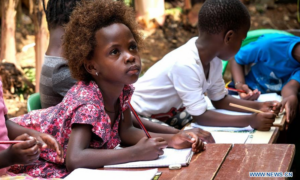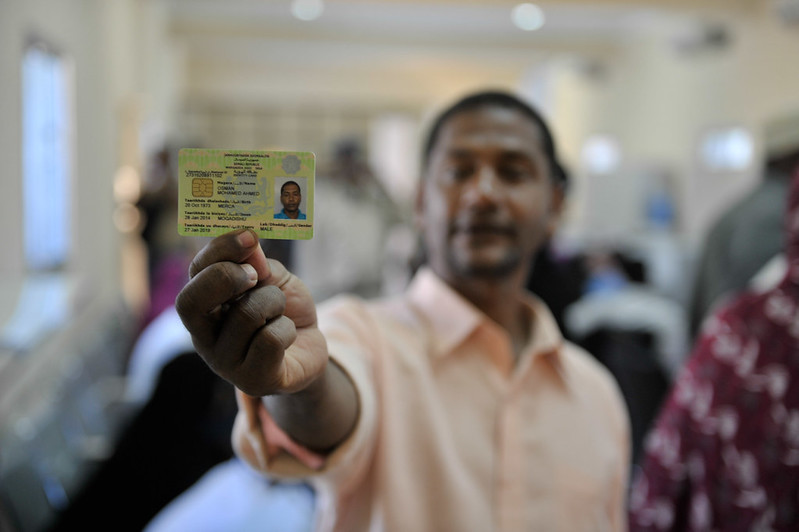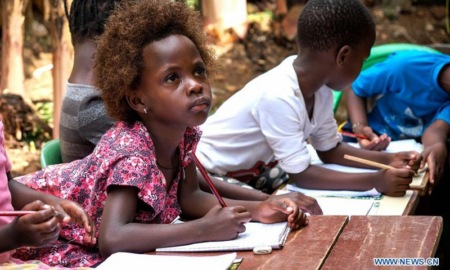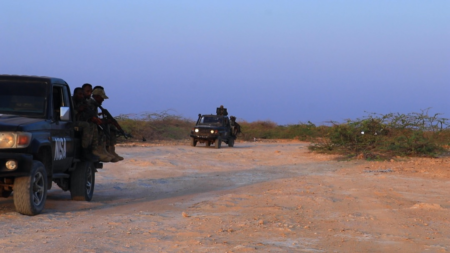Somalia’s National Identification and Registration Authority (NIRA) has officially launched a pilot mass registration campaign for national IDs in the districts of Shangani and Boondheer.
This marks a major step in the Federal Government of Somalia’s (FGS) long-term reform agenda.
The initiative is part of Somalia’s vision to promote digital identity, financial inclusion, and national security.
While expanding access to essential public and private services such as banking, education, and social programs.
The Vital Role of National IDs in Somalia’s Development
Somalia, located in the Horn of Africa, has faced years of drought, famine, and conflict that have hindered its economic and institutional progress.
According to national statistics, over 50% of Somalis live below the poverty line.
While three-quarters experience non-monetary poverty — a situation especially severe among nomadic populations.
The lack of a foundational ID system has been a key obstacle to social and economic participation.
2022 Somali Integrated Household Budget Survey revealed that only 16% of citizens possess any form of government-issued identification.
Why is the Easy Access to National IDs Important?
Easy access to national IDs is crucial for daily and long-term needs, including:
- Opening and operating bank accounts
- Accessing government welfare and social protection programs
- Applying for jobs and educational opportunities
- Activating mobile or SIM services
- Traveling domestically and internationally
Without an official ID, millions of Somalis are excluded from both government and private sector services.
Which limits the opportunities of employment, education, and financial inclusion.

What Are the Barriers in Front of Expanding ID Coverage?
While the national ID program promises progress, Somalia faces significant challenges in reaching unregistered citizens.
The country’s population remains widely dispersed, with many living in rural and nomadic communities that are difficult to access.
Cultural and social barriers also impact registration.
Restrictions on Women’s Participation
Traditional norms often restrict women’s participation in public life, making it harder for them to register for national IDs or benefit from related services.
Meanwhile, low literacy rates — only 54% among adults — further complicate outreach and awareness efforts.
Security concerns add another layer of difficulty.
Years of conflict and the threat of extremist groups have created mistrust around data protection and surveillance, causing hesitation among citizens wary of digital registration systems.
Steps Toward Inclusive and Secure National IDs Registration
To overcome these barriers, NIRA has established new registration centers in Shangani and Mogadishu and deployed district representatives to assist with citizen enrollment.
A new “one-window” system now consolidates all registration steps into a single, streamlined process designed to improve efficiency and user experience.
50% of the First One Million Registrants Must be Women
Inclusivity and privacy remain central to the campaign.
The Ministry of Finance’s Digital ID Inclusive Enrollment Strategy mandates that at least 50% of the first one million registrants must be women.
Additionally, Somalia has pledged full compliance with the United Nations’ Personal Data Protection and Privacy Principles.
Ensuring all personal information remains confidential and secure.
NIRA is offering multiple ID formats — physical cards, digital versions, and printed certificates — to ensure accessibility for all citizens.
The government’s long-term goal is to register all 15 million Somali citizens by 2029.
How Can National IDs Reduce Poverty?
The mass registration of national IDs represents more than a bureaucratic process — it is a foundation for inclusive economic growth and governance.
With official identification, Somalis will gain easier access to banking services, microfinance, and entrepreneurial opportunities.
Particularly empowering women and youth.
Will Somalia Government Benefit from The Digital ID System?
From a governance perspective, a robust digital ID system enhances national security and transparency. It also reduces the risks of money laundering, fraud, and terrorist financing.
As it is helping the government and aid organizations better target beneficiaries, eliminate duplication, and improve service delivery.
Moreover, the digital infrastructure behind Somalia’s ID program will encourage innovation, strengthen the private sector, and create jobs across emerging industries such as fintech, ICT, and data management.
More Inclusive Future
The launch of NIRA pilot marks a turning point for Somalia.
By expanding national ID coverage, the country is building the foundation for a more inclusive, secure, and prosperous society.
One where every citizen has the tools to participate fully in national and economic life.
As Somalia moves toward nationwide registration by 2029, this initiative stands as a symbol of progress and resilience.
Reaffirming the government’s commitment to sustainable development and equality for all Somalis.








